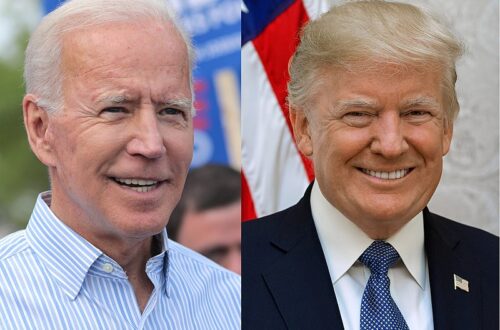The Supreme Court’s reversal of the landmark Roe v. Wade decision sent a shock through the nation earlier this year. Several states around the country, such as Texas and Tennessee, implemented complete bans on abortion, while others chose to expand protections instead. Americans on both sides of the issue have extremely strong convictions, which has had a major impact on voter registration for the upcoming midterm elections.
A nationwide Wall Street Journal poll in August found that abortion is widely considered the second most important issue in the upcoming congressional elections, trailing only the rehabilitation of the economy in importance to voters. Additionally, 56% of respondents indicated that the overturning of Roe v. Wade has made them more likely to vote in November.
The nationwide poll seems to ring true for Florida residents as the number of active registered voters in the state increased by nearly 100,000 people in 2022 alone. However, Florida has not seen as significant an increase in female registered voters as other states.
According to data from the Florida Secretary of State and the New York Times, women accounted for 50% of newly registered voters in the state prior to the leak of Supreme Court Justice Samuel Alito’s opinion in the Dobbs v. Jackson case, the precursor to the Court’s overturning of Roe v. Wade. After the leak, there was a 2.3% increase, with women now comprising 52% of newly registered voters.
While the 2.3% change is not negligible in a competitive state like Florida, it is markedly less than the changes seen elsewhere in the country. In Kansas, the change was 15.9% and around 6% in both Ohio and Pennsylvania.
The relatively small change in Florida compared to other states can be attributed to many factors, such as existing challenges to abortion and sentiment about abortion in the state.
Currently, abortion has a protected status in Florida. The state’s high court recognized the right to abortion in the Florida Constitution, meaning that it will remain legal — likely in most cases.
Despite abortion’s protected status in Florida, a ban on abortions after 15 weeks was approved by the state Legislature and signed into law by Gov. Ron DeSantis. The law was temporarily blocked by a circuit judge on June 30 on the grounds that it was likely unconstitutional, but an appeal filed by Florida Attorney General Ashley Moody on behalf of the state stayed the judge’s order. The “stay” means the law will remain in place until the court’s final decision.
The ban is currently in effect but is being challenged by healthcare providers and abortion activists. The case has yet to succeed when heard in courts around the state, with the decision of the First District Court of Appeals essentially closing legal challenges to the law. Those challenging the law argue that abortion is overtly protected in the state constitution, and plan to continue appealing the ban until it reaches the Florida Supreme Court.
In accordance with the importance of abortion in its constitution, Florida is one of two states in the south in which a majority of residents support abortion rights, with 56% of residents saying that abortion should be legal in all or most cases. This number, recorded in 2019, has become even starker in surveys of post-Roe Florida.
Contradictory to opinions of Floridians regarding abortion, Florida has seen an increase in voter affiliation with the Republican Party in 2022. The party gained approximately 110,000 registered voters this year, while the Democratic Party saw a decrease of around the same number. The Republican Party of Florida under Gov. Ron DeSantis is staunchly anti-abortion, and DeSantis vowed to further restrict abortion accessibility in the state after the overturn of Roe v. Wade.
Gov. DeSantis, beyond tightening restrictions to ban abortion after 15 weeks instead of 24, has not focused his reelection campaign on abortion issues. Florida has a history of elections being decided by swing voters, many of whom may consider abortion a significant issue; DeSantis has avoided the risk of alienating them from his campaign.
An all-out ban on abortion is not on DeSantis’ campaign platform but is considered unavoidable if he is reelected as governor in November. DeSantis is considered a contender for the Republican Party’s nomination in the 2024 presidential race, and an abortion ban would be a key move to consolidate national Republican support.
According to recent voter polls, abortion appears to be a much more significant issue in states where abortion rights are already limited or at risk of being so, rather than states like Florida that have constitutional protections for safe access to abortions in place.
Regardless, the abortion issue after Roe v. Wade has already had an undeniable effect on voter registration in Florida currently and will continue to impact the state’s political landscape indefinitely.
Check out other recent articles from the Florida Political Review here.
Featured image: An abortion rights protest in Minnesota. (Unmodified photo by Tony Webster used under a Creative Commons license. https://bit.ly/3xIge7O)





